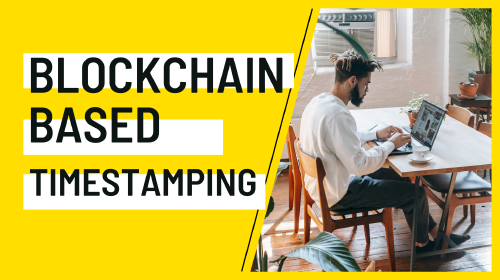Blockchain Adoption for Provenance Traceability
Salomon Kisters
Apr 3, 2023This post may contain affiliate links. If you use these links to buy something we may earn a commission. Thanks!
With the farm-to-fork chain going global, additional challenges such as fraud, safety, security, and quality issues have emerged for food systems. These complex challenges are rooted in the inefficiencies of our supply chain systems, making provenance traceability and transparency an urgent need.
Growing consumer concerns about food safety are also prompting the need for visibility across the whole agricultural supply chain.
Adopting blockchain for provenance traceability holds the key to addressing this issue, with the potential for enabling more transparency and reduced administrative expenses. Blockchain creates a shared, secure record of information flows for customers to refer to. This helps lower risks to food safety, boosting customer confidence in the provenance of goods, and improving supply chain efficiency down the road.
Blockchain: The Evolving Technology with Tremendous Potential
Blockchain is a chain of continually authenticated new transactions that serve as an immutable record of digital transaction data. It dramatically lowers overhead and transaction costs by minimizing paperwork and errors and the requirement for intermediaries or third parties to validate transactions.
The benefits of blockchain technology adoption across industries and applications include:
- Improved Traceability: Blockchain establishes an audit trail that records an asset’s origins at each stage of its travel. Therefore, blockchain makes it feasible to make provenance information directly available to customers. At the same time, insights on traceability can reveal weak points in the supply chain to make them seamless and more effective at the earliest.
- Greater Transparency: Blockchain uses a distributed ledger, which ensures that transactions and data are recorded consistently across all locations. Full transparency is provided since every network user with permissions can see the same data at once. All transactions are time- and date-stamped records that cannot be altered.
- Enhanced Speed and Efficiency: Conventional paper-intensive procedures take a long time, are subject to human errors, and frequently call for third-party mediation. Transactions can be finished more quickly and effectively by automating these operations with blockchain. The blockchain may hold documentation and transaction information together, doing away with the necessity for paper exchange. Clearing and settlement can happen considerably more quickly because there is no need to reconcile various ledgers.
- Greater Security: Blockchain reduces fraud by creating an immutable record that cannot be changed and is encrypted end-to-end. Privacy issues can be solved on the blockchain by employing permissions to restrict access and anonymize personal data. Information is kept across a network of computers rather than on a single server to prevent hackers from accessing sensitive data.
- Automation of Tasks: Transactions may be automated with “smart contracts,” transactions, enhancing the productivity of an organization and speeding up processes. Smart contracts also help reduce human intervention and error, as well as the involvement of third parties. Therefore, automation helps reduce delays and errors, while also ensuring timely outcomes.
Adopting Blockchain for Provenance Traceability
By enabling reliable food supply chains, blockchain can trace the origin of agricultural products. Any participant in the supply chain can quickly log into the blockchain platform thanks to blockchain traceability, while their data is protected from hacking or illicit activities at the same time.
To manage the supply chain more efficiently, parties can keep track of price, date, location, quality, certification, and other pertinent information using blockchain technology. The availability of such data within the blockchain can greatly improve visibility and compliance, enable material provenance traceability down the supply chain, and reduce losses from grey market and counterfeit products.
Food and agricultural businesses can leverage blockchain to strengthen their corporate reputation by offering clarity on the materials they use in their products. Credibility and public trust in the information improve, and there are lesser chances of supply chain malpractices.
Also, businesses have more control over any outsourced contract manufacturing they have opted for, thanks to the improved visibility. Less time is spent on verifying data and more time delivering goods and services.
Finally, by enabling a successful audit of supply chain data, blockchain can improve administrative processes and lower expenses. A distributed ledger of all pertinent information can speed up processes that currently involve manual checks for compliance or credit that could take weeks.
Some Global Examples
By increasing supply chain transparency, lowering risk, boosting efficiency, and improving supply chain management, blockchain-driven innovations have the potential to create enormous commercial value.
Take for instance the supply chain transparency start-up Provenance, which recently finished a six-month pilot for using blockchain to track ethical tuna sourcing in Indonesia.
In Auvergne, France, retailer Carrefour has integrated blockchain food traceability for free-range chickens, allowing consumers to follow each step of production on their cellphones.
Walmart, on the other hand, developed a food traceability system based on blockchain to track the origin of the mangoes sold in Walmart’s US stores. It has recently announced that it will start requiring all its suppliers of fresh leafy greens to trace their products using the system.
The Future of Food Systems is Transparent!
Blockchain contributes to stronger, more robust supply chains and better business relationships by fostering trust amongst trading partners, delivering end-to-end visibility, optimizing operations, and resolving issues more quickly.
In the event of disruptions, participants can also take action sooner. Blockchain technology also has tremendous scope when it comes to reducing waste and ensuring food safety and freshness.
The technology is still growing and ever-evolving. The size of the global blockchain market is projected to grow with a CAGR of 56.9% to $56.7 billion by 2026. The demand for end-to-end traceability of goods and transactions as well as easier inventory and asset provenance tracking are some of the key factors driving the growth of specialized blockchain solutions across industries.
Stay informed with the latest insights in Crypto, Blockchain, and Cyber-Security! Subscribe to our newsletter now to receive exclusive updates, expert analyses, and current developments directly to your inbox. Don't miss the opportunity to expand your knowledge and stay up-to-date.
Love what you're reading? Subscribe for top stories in Crypto, Blockchain, and Cyber-Security. Stay informed with exclusive updates.
Please note that the Content may have been generated with the Help of AI. The editorial content of OriginStamp AG does not constitute a recommendation for investment or purchase advice. In principle, an investment can also lead to a total loss. Therefore, please seek advice before making an investment decision.

How Blockchain Technology Enhances Provenance
Blockchain technology enhances provenance by providing a secure and immutable tracking mechanism for data, ensuring authenticity and trust in various industries.

What Is Blockchain-Based Timestamping and Who Needs It?
Learn how blockchain-based timestamping works and why embedding blockchain-based timestamping can be a significant competitive advantage for your business.

Importance of Security, Traceability, and Immutability at OriginStamp
Understand the significance of Security, Traceability, and Immutability at OriginStamp with blockchain technology. Learn how these features enhance document validation and data integrity.
Protect your documents
Your gateway to unforgeable data. Imprint the authenticity of your information with our blockchain timestamp